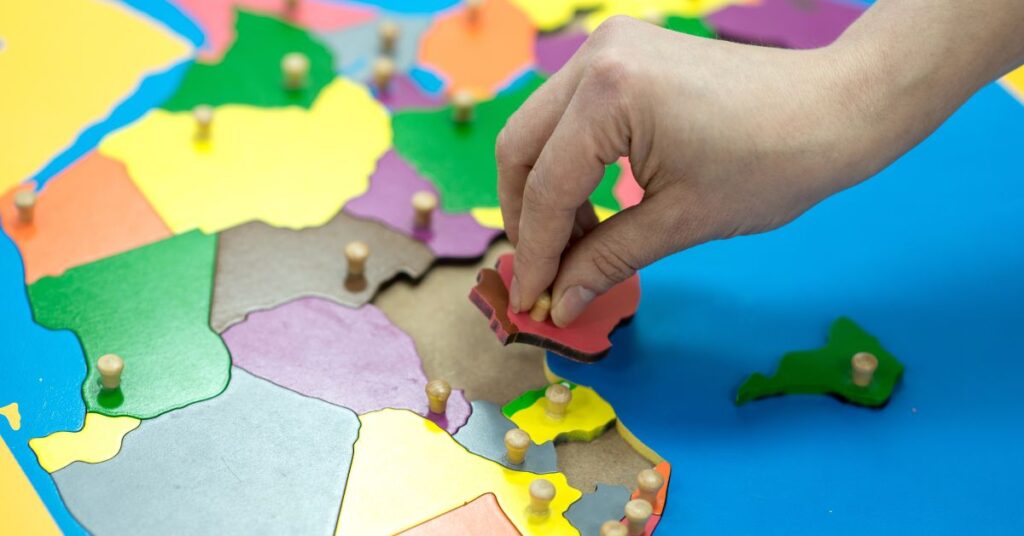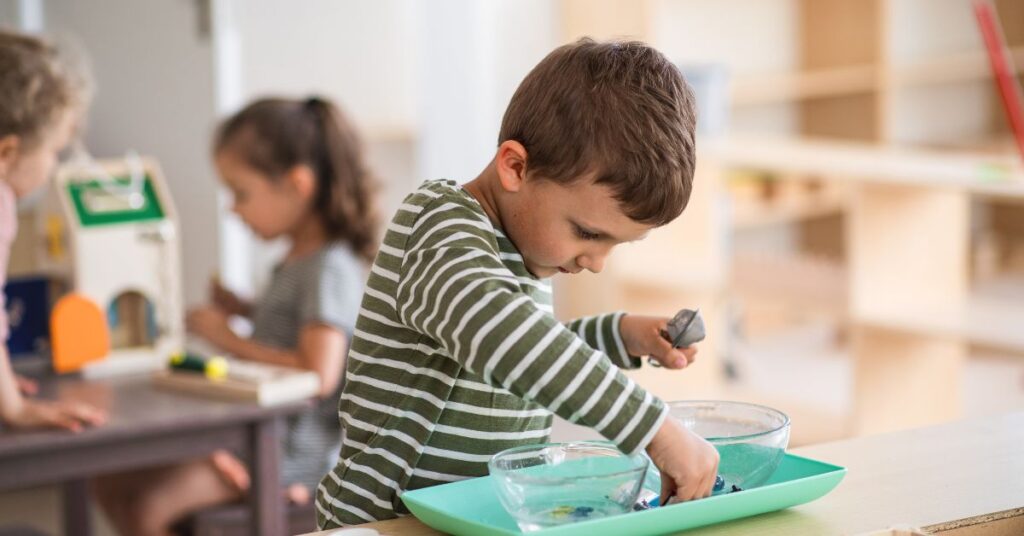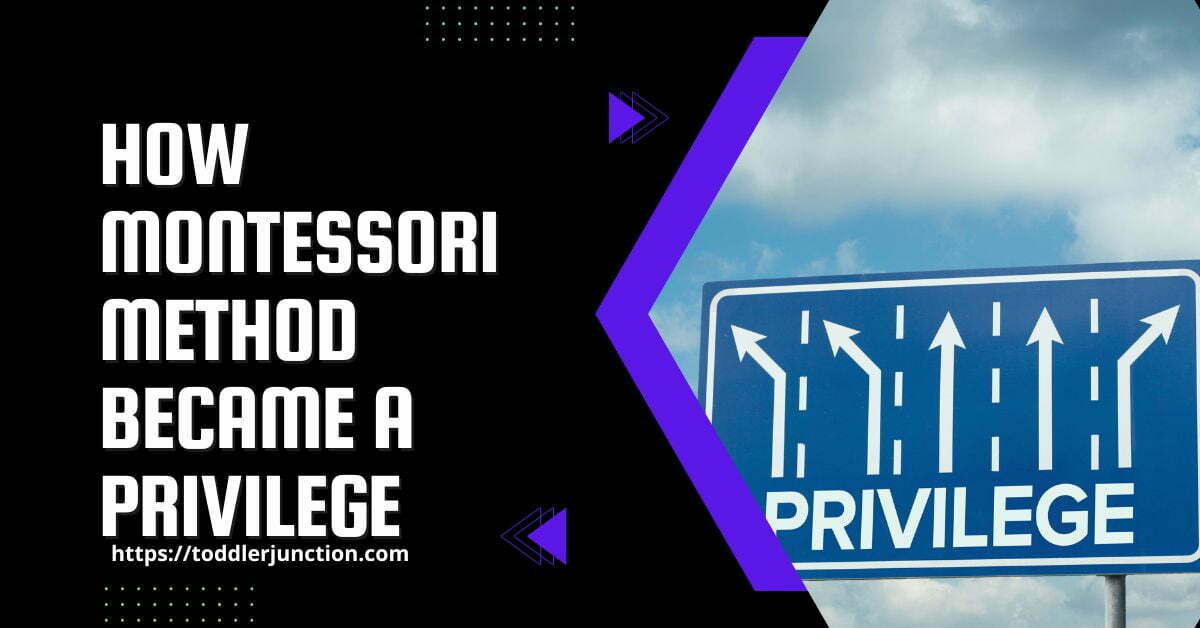It’s no secret that the Montessori method has become popular among parents seeking an alternative to traditional schools. But how did the Montessori method become a privilege? In this article, we’ll explore the origins of Montessori and how it became a popular choice for parents.
Dr. Maria Montessori
Dr. Maria Montessori was an Italian physician and educator who developed a new educational approach, now practiced worldwide.
Montessori’s educational method is based on her observations of children’s natural desire to learn. She believed that all children have the potential to reach their fullest potential if they have the freedom to explore and learn at their own pace in a supportive environment.
The Montessori approach has shown to be particularly beneficial for children from disadvantaged backgrounds, as it helps them to close the achievement gap and reach their potential. Unfortunately, Montessori schools are often costly, meaning that this approach is out of reach for many families.
The first Montessori school
The first Montessori school was founded in 1907 by Dr. Maria Montessori in Rome, Italy. The school provides a nurturing environment for children of all socioeconomic backgrounds. Dr. Montessori believed that all children deserved access to quality education, regardless of their socioeconomic status.
Unfortunately, the Montessori method became a privilege for only the wealthy when it spread to the United States and other Western countries. In these nations, private schools began to pop up, charging high tuition rates for parents seeking a Montessori education for their children. As a result, most children who benefited from the Montessori method came from affluent families.
Today, there is a growing movement to make Montessori education more accessible to all children, regardless of their economic background. Many public and charter schools have begun implementing the Montessori method in their classrooms. In addition, several affordable Montessori schools have been established recently, making this quality education more available to families of all income levels.

The Montessori method
Dr. Maria Montessori was an Italian physician and educator who developed a method of education for young children based on their natural learning.
The Montessori method is now used in schools worldwide, but it is often seen as a privilege for wealthy families. Let’s take a look at how the Montessori method became a privilege.
What is the Montessori method?
A Montessori method is an educational approach developed by Italian physician and educator Maria Montessori. Based on her belief that children are naturally curious and learn best by exploring their environment, the Montessori method emphasizes hands-on learning and active participation in the classroom.
While the Montessori method has been around for over a century, it has only recently gained popularity in the United States. Part of this is due to the growing popularity of alternative education methods, but it’s also because the Montessori method is often seen as a privilege.
While some public schools are beginning to adopt the Montessori method, most Montessori schools are private and can be pretty expensive. Only families who can afford to pay for Tuition can take advantage of this educational approach.
Critics of the Montessori method argue that it caters to rich kids and doesn’t do enough to close the achievement gap between advantaged and disadvantaged students. Others say that the Montessori method is a proven educational approach that should be available to all students, regardless of their background or economic status.
The fundamental principles of the Montessori method
The Montessori method is a child-centered educational approach based on the observations of Italian physician and educator Maria Montessori. The basic principles of the Montessori method are:
- respect for the child’s natural development
- a prepared environment that meets the needs of the individual child
- a focus on practical life skills
- a mixed-age classroom
- an emphasis on collaboration over competition
- a hands-on approach to learning
The Montessori method today
The Montessori method of education was developed over 100 years ago by Dr. Maria Montessori. The Montessori method is a child-centered educational approach that emphasizes individualized instruction and a hands-on learning environment. The Montessori method has become a privilege for a few instead of being available to all.

The popularity of the Montessori method
The Montessori method of education is named after its founder, Dr. Maria Montessori, who developed the system in the early 1900s. The popularity of the Montessori method has grown recently as parents have become increasingly interested in alternatives to traditional educational methods.
The Montessori method is based on the belief that children are natural learners who can absorb information more effectively when they are allowed to explore and discover on their own. The Montessori classroom provides a stimulating environment that encourages independence, creativity, and critical thinking.
Many parents choose the Montessori method because it offers a more holistic approach to education than traditional schools. The Montessori method also appeals to parents who want their children to be challenged academically and socially.
Unfortunately, the popularity of the Montessori method has also led to it becoming a bit of a privilege. Because the demand for Montessori schools has grown exponentially in recent years, many schools have become quite selective in their admissions process. This has made it difficult for families who do not have the financial resources to afford Tuition at a private Montessori school.
There are some public Montessori schools, but they are few and far between. The vast majority of Montessori schools are private institutions that charge Tuition for attendance. This means that, for many families, the Montessori method is simply out of reach.
The criticism of the Montessori method
The Montessori method has been criticized for several reasons. One common criticism is that it is too expensive. Montessori schools typically charge more than traditional public schools. This can make it difficult for families of lower socioeconomic status to afford a Montessori education for their children.
Another criticism of the Montessori method is that it values independence and self-direction to the point that it may not adequately prepare children for the structure and discipline of traditional schools or the workplace. Some parents worry that their children will not be able to function in a more traditional educational setting after attending a Montessori school.
Finally, some people argue that the Montessori method does not do enough to teach children about socialization and cooperation. They worry that children who are used to working independently may have difficulty learning to work together in groups.
The cost of the Montessori method
The cost of the Montessori method can be prohibitive for some families. While some schools offer scholarships or financial aid, the truth is that most Montessori schools are pretty expensive. This is because the method requires specially trained teachers and materials often not covered by government funding.
Some families send their children to Montessori schools for a portion of their education and then switch to a more traditional school for the remaining years.
Others may opt for a home-based Montessori education, which can be significantly less expensive. But even with these options, the cost of the Montessori method can be a barrier for many families.


